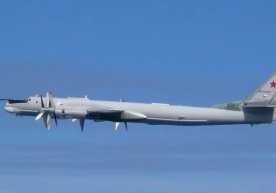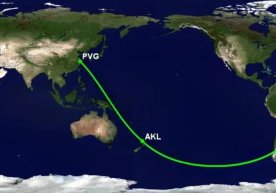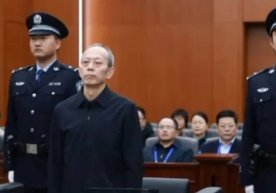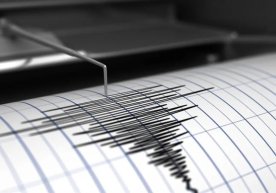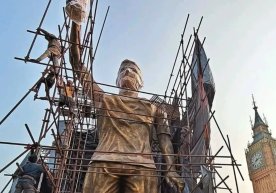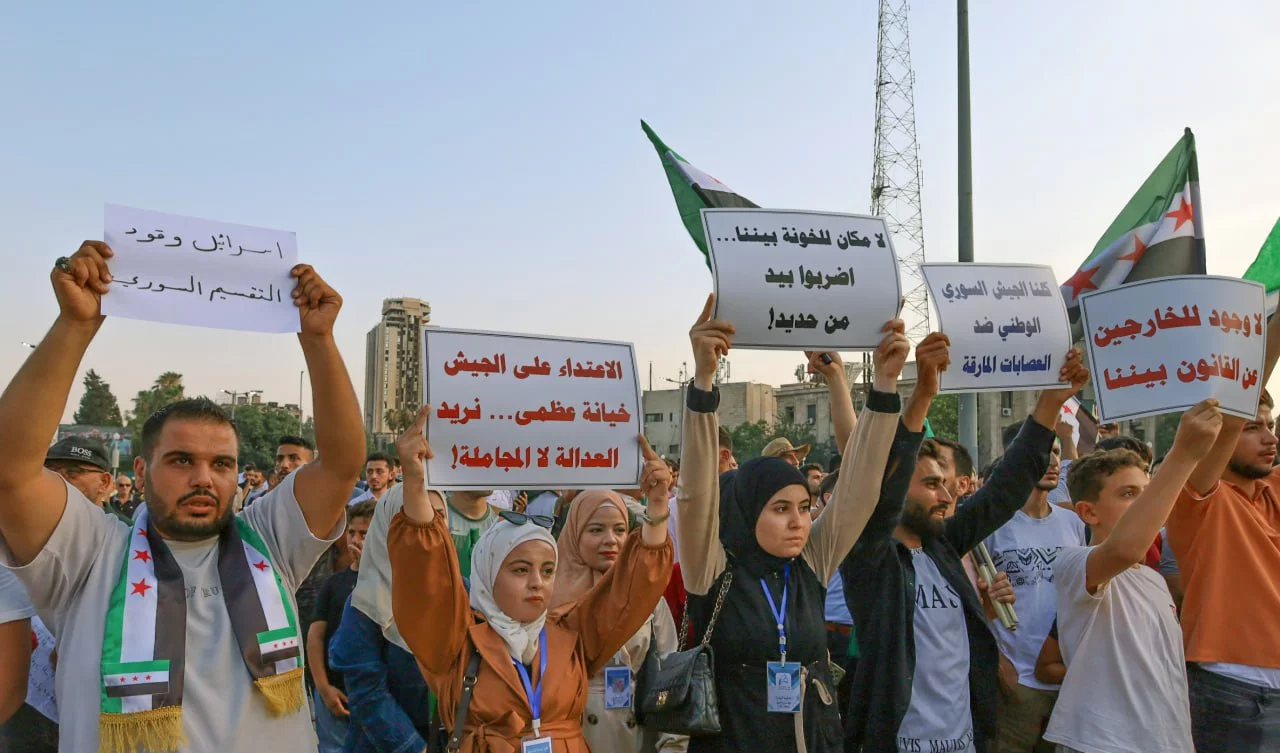
The situation in the Middle East has escalated again: on July 16, Israel launched several airstrikes on central Damascus, hitting not only Syria’s Ministry of Defense building but also near the presidential palace. These airstrikes occurred amid bloody clashes between government forces and Druze militants in the city of Suwayda, southwestern Syria, reports reuters.com.
Following these strikes, Israeli Defense Minister Israel Katz made an official statement, stressing that the country’s army remains committed to protecting the Druze population in Syria. However, he also noted that after the airstrikes, the Druze leader stated that a truce had been reached with government forces. Nevertheless, all developments show that the situation in Syria remains complex and unstable.
Interim President of Syria Ahmad ash-Shara, on Thursday morning, addressed the nation, particularly the Druze community, calling the protection of their rights and interests a “top priority.” In his address, ash-Shara openly declared that Israel has repeatedly interfered in independent Syria’s affairs and this time is also trying to sow discord and unrest in the country.
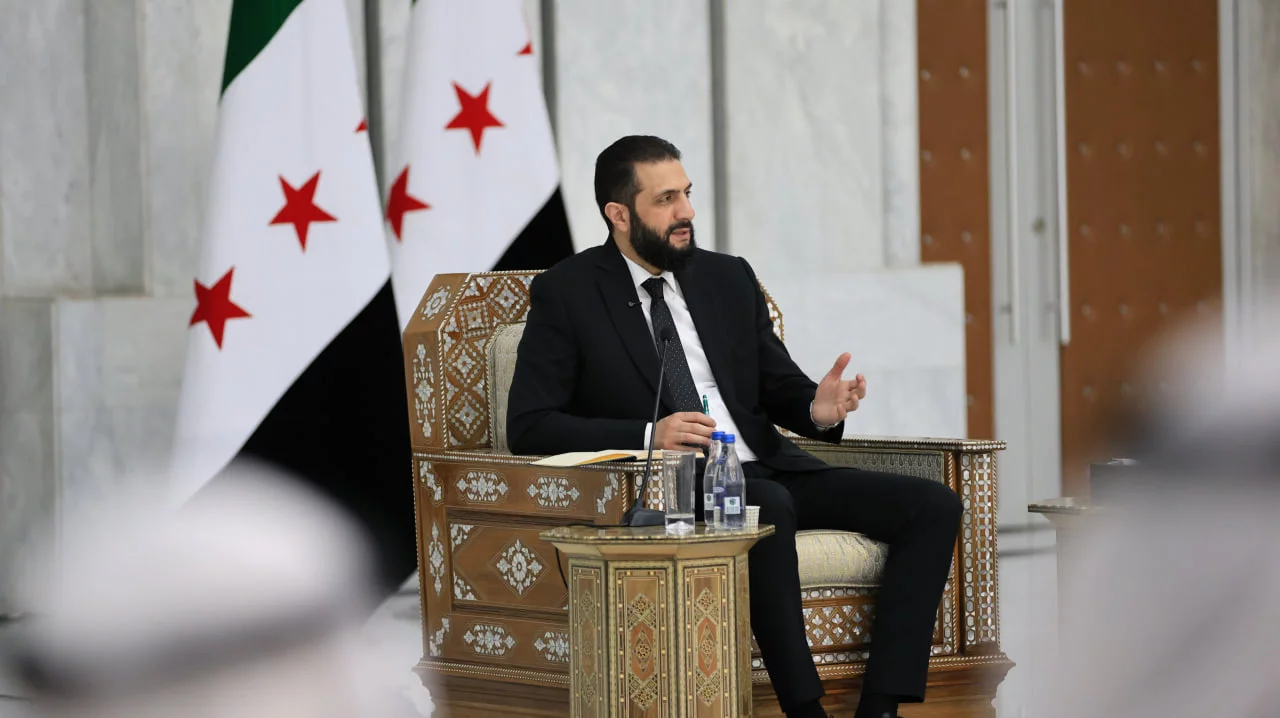
Photo: Reuters
"Being strong or achieving success does not mean winning in all areas. If a war breaks out, controlling its consequences and restoring stability will be much more difficult. We Syrians are ready to do everything to protect our Homeland from external interference and any division," ash-Shara emphasized.
He gave special attention in his speech to the Druze: "Syria will never allow a split among its children. We consider the protection of your freedoms and rights our duty. Any attempts to make alliances with other states or to sow discord among us will be resolutely rejected," he said.
According to the Syrian leader, despite Israel’s interference, relative stability has been restored in the region and illegal groups have been crushed. After yesterday’s strikes, the country faces a choice — to be drawn into a new war or to ensure peace based on national interests.
"We are not afraid of war. But the peace and security of our people, the unity of our homeland will always come first," added ash-Shara. At the same time, he warned against embarking on a path that could lead the country into a new large-scale war.
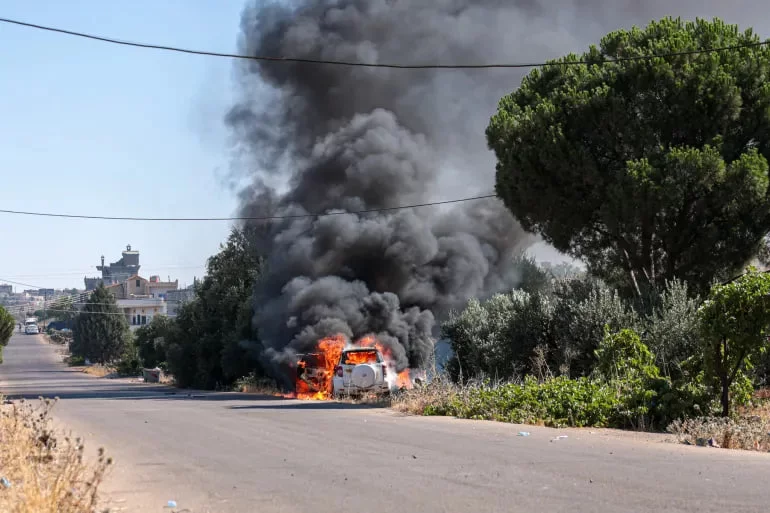
Photo: Reuters
According to SANA, in several regions of the country, including Aleppo, there were mass demonstrations in support of the government and against foreign interference in the country’s internal affairs. This again showed the unity of Syrians in the face of external threats.
On the international stage, these events did not go unanswered. United Nations Secretary-General António Guterres strongly condemned Israel’s strikes on Suwayda, Daraa, and central Damascus. Through spokesperson Stéphane Dujarric, he said: “Reports of Israel Defense Forces redeploying on the Golan Heights and airstrikes are causing serious concern.”
US Secretary of State Marco Rubio also acknowledged that the situation had escalated and called on all parties to exercise caution. “This is a very serious situation. We are now in contact with all relevant parties and news may come in the next few hours,” Rubio said.
Turkey’s Ministry of Foreign Affairs also condemned these airstrikes, calling them “sabotage against Syria’s efforts to restore peace and stability.” Turkey’s parliament adopted a special resolution strongly condemning this “vile” operation by Israel.
Iranian Foreign Minister Abbas Araqchi called the strike an “expected event” and stated that his country supports Syria’s sovereignty and territorial integrity. “The Israeli regime recognizes no boundaries and only understands the language of force,” Araqchi said.
The Gulf Cooperation Council states — Bahrain, Kuwait, Oman, Qatar, Saudi Arabia, and the UAE — condemned the airstrikes “in the strongest terms.” In their statements, they emphasized: “Israel’s actions are a blatant violation of Syria’s sovereignty, contrary to international law, and a serious threat to regional security.”
President of the European Council António Costa also expressed serious concern over the strikes on Damascus, noting that Syria’s sovereignty and territorial integrity must be respected. “All parties must refrain from violence and make efforts to de-escalate tensions,” he said.
In short, the recent events in Damascus and Syria have again put stability in the Middle East to a serious test. On one side — external threats, on the other — the struggle for national unity and serious concerns of the international community. Against the backdrop of ongoing competition of interests and political clashes, international pressure, political statements, and mass protests are giving new impetus to the development of events. The future of Syria, issues of peace and security are again at the center of the Middle East’s political agenda.
Photo: SANA News Read “Zamin” on Telegram!
Ctrl
Enter
Found a mistake?
Select the phrase and press Ctrl+Enter Related news
Information
Users of Меҳмон are not allowed to comment this publication.
Users of Меҳмон are not allowed to comment this publication.







